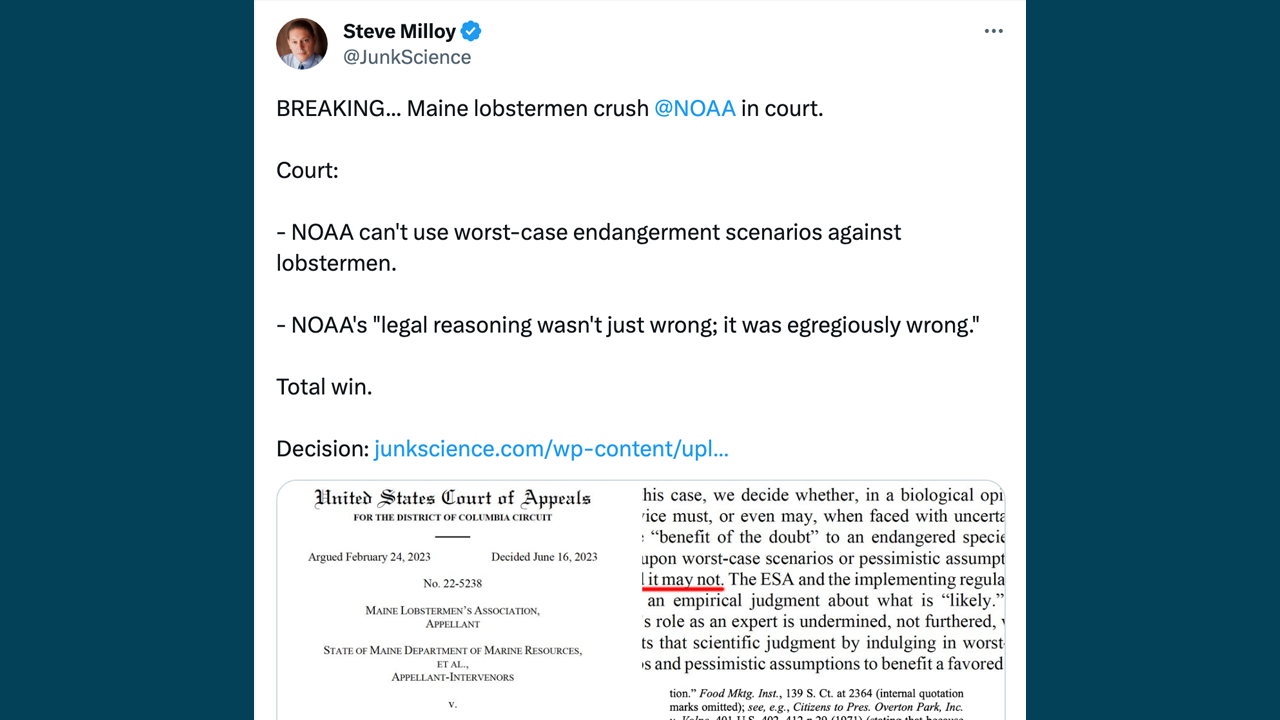“The National Marine Fisheries Service licenses fisheries in federal waters. In doing so, the Service must comply with the Endangered Species Act (ESA). That Act requires the Service to prepare an “opinion,” commonly known as a biological opinion, “detailing how the [fishery] affects” any endangered or threatened species. 16 U.S.C. § 1536(b)(3)(A). Using “the best scientific and commercial data available,” the Service’s opinion must determine whether the federal fishery is “not likely” to jeopardize the survival of a protected species. Id. § 1536(a)(2). In this case, we decide whether, in a biological opinion, the Service must, or even may, when faced with uncertainty, give the “benefit of the doubt” to an endangered species by relying upon worst-case scenarios or pessimistic assumptions. We hold it may not. The ESA and the implementing regulations call for an empirical judgment about what is “likely.” The Service’s role as an expert is undermined, not furthered, when it distorts that scientific judgment by indulging in worst-case scenarios and pessimistic assumptions to benefit a favored side.” — Justice Ginsburg, D.C. Circuit Court of Appeals
In Episode 368 of District of Conservation, Gabriella recaps POMA Business Conference and discusses Maine lobstermen successfully suing the Commerce Department and why BLM’s Conservation Landscape and Health Rule isn’t true conservation.
SHOW NOTES
In Episode 368 of District of Conservation, Gabriella recaps POMA Business Conference and discusses Maine lobstermen successfully suing the Commerce Department and why BLM’s Conservation Landscape and Health Rule isn’t true conservation.
SHOW NOTES
Substack: POMA Conference & Thank You for Helping the Housers
Maine Lobstermen Association vs NMFS Ruling
News on 6: PROFESSIONAL OUTDOOR MEDIA ASSOCIATION HOSTS ANNUAL BUSINESS CONFERENCE IN GREEN COUNTRY
D.C. Circuit Court Decision – Ryan Maue Tweet
BLM: Conservation and Landscape Health
Barrasso: Proposed BLM Rule Would be a Clear Violation of the Law
